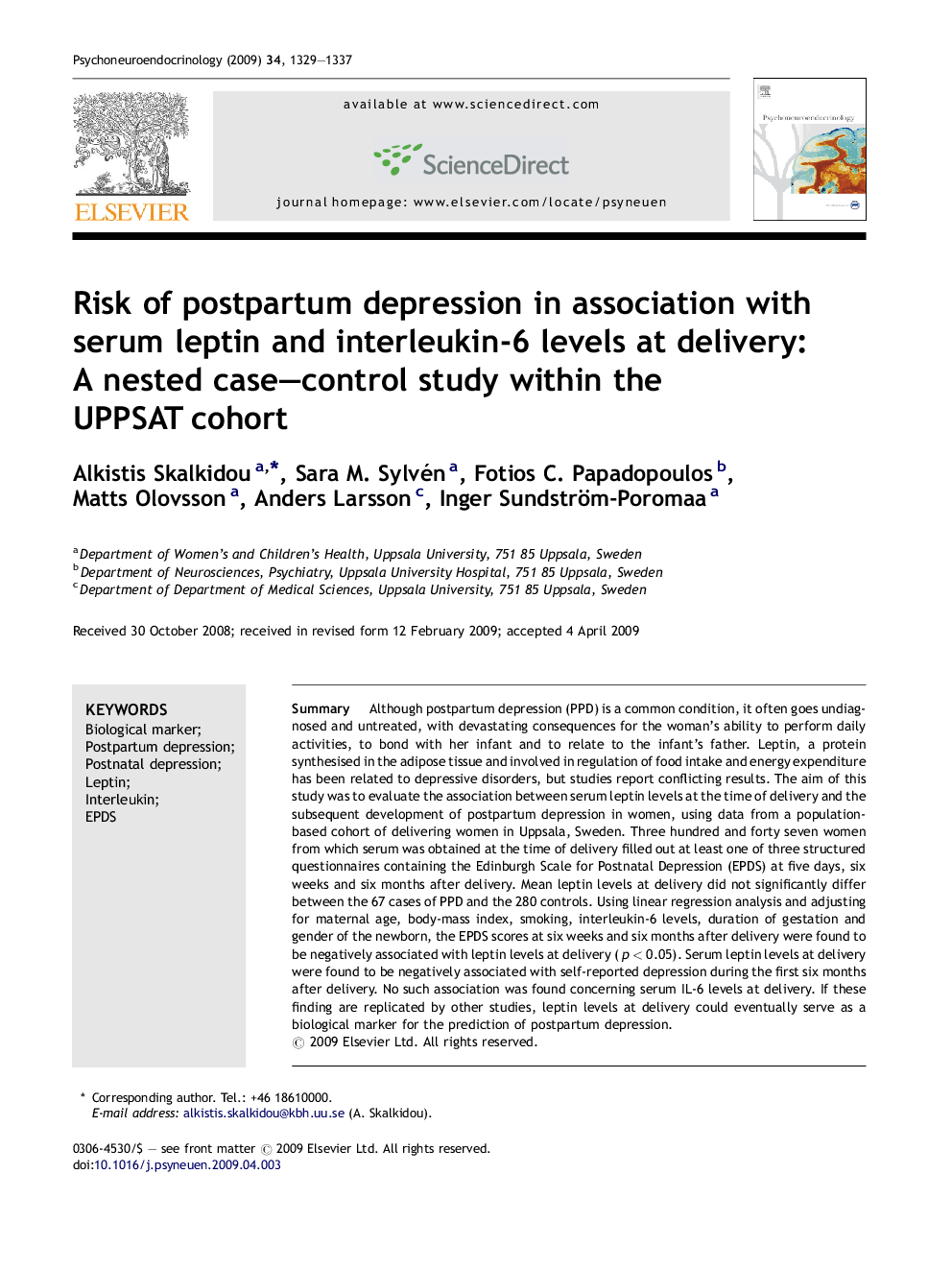| Article ID | Journal | Published Year | Pages | File Type |
|---|---|---|---|---|
| 336719 | Psychoneuroendocrinology | 2009 | 9 Pages |
SummaryAlthough postpartum depression (PPD) is a common condition, it often goes undiagnosed and untreated, with devastating consequences for the woman's ability to perform daily activities, to bond with her infant and to relate to the infant's father. Leptin, a protein synthesised in the adipose tissue and involved in regulation of food intake and energy expenditure has been related to depressive disorders, but studies report conflicting results. The aim of this study was to evaluate the association between serum leptin levels at the time of delivery and the subsequent development of postpartum depression in women, using data from a population-based cohort of delivering women in Uppsala, Sweden. Three hundred and forty seven women from which serum was obtained at the time of delivery filled out at least one of three structured questionnaires containing the Edinburgh Scale for Postnatal Depression (EPDS) at five days, six weeks and six months after delivery. Mean leptin levels at delivery did not significantly differ between the 67 cases of PPD and the 280 controls. Using linear regression analysis and adjusting for maternal age, body-mass index, smoking, interleukin-6 levels, duration of gestation and gender of the newborn, the EPDS scores at six weeks and six months after delivery were found to be negatively associated with leptin levels at delivery (p < 0.05). Serum leptin levels at delivery were found to be negatively associated with self-reported depression during the first six months after delivery. No such association was found concerning serum IL-6 levels at delivery. If these finding are replicated by other studies, leptin levels at delivery could eventually serve as a biological marker for the prediction of postpartum depression.
